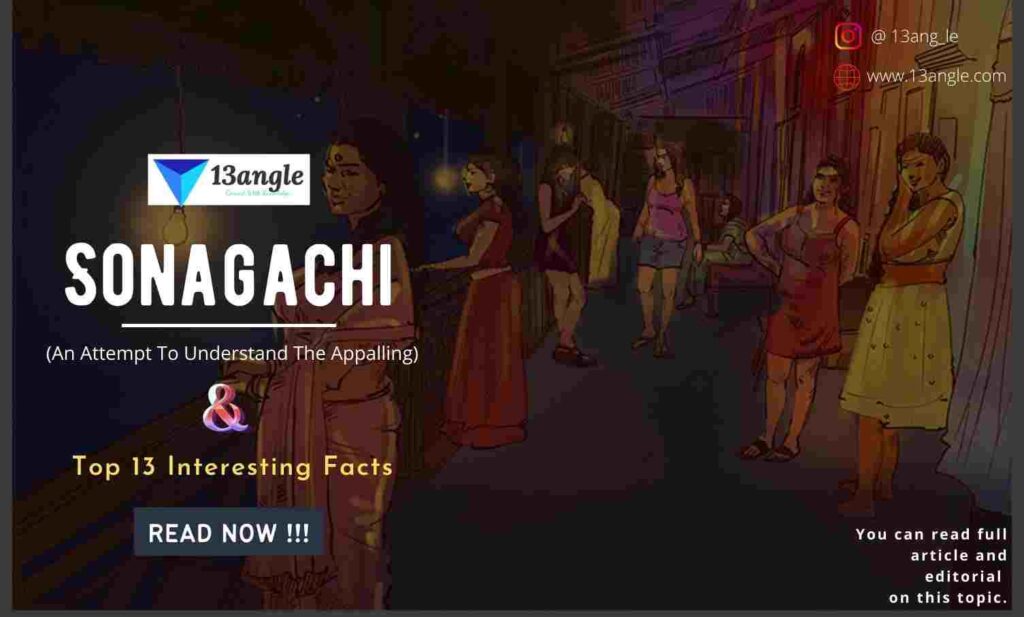India has witnessed a growing mandate to legalize prostitution in order to eliminate the exploitation of sex workers, but the question today is whether this will diminish India’s rape culture. According to the National Crime Records Bureau (NCRB), a woman in India is raped every Six Hours.
India has been dubbed the “Rape Capital” of the world due to its high rape crime rate. India recorded 88 rape crimes every day in 2020, according to the latest data from the National Crime Records Bureau. Based on these numbers, there is an immediate need to reduce the rape culture in India. The question now is whether legalizing prostitution will be considered one of the ways to regulate rape culture. Prostitution is defined as “the act of engaging in relatively indiscriminate sexual contact with someone who is not your spouse or a friend in exchange for an immediate payment or something of value.” Men with insatiable needs will be able to go to sex workers at any time if prostitution is allowed, without pestering or exploiting young girls and women on the streets or at work.
Why rape someone when a prostitute is available? Consider the effects of post-traumatic stress disorder, as well as the exceedingly difficult and terrible emotions that raped young girls experience. Some rape victims will get sexually transmitted illnesses as a result of their ordeal. Men will be able to have consensual and protected sex if prostitution is allowed, which will help diminish India’s rape culture. Not just men, but also women are raping young boys and men these days, necessitating the urgent need to curb rape culture in India.
Women can willingly engage in sex works that serve as consensual sex after prostitution is legalized. Volunteering for sex work helps to combat rape culture by allowing people to go to a sex worker and have the desired intercourse without having to deflower young girls and women, traumatize them, and shatter their dreams and hopes. Legalizing prostitution not only makes sex work safer, but it also helps to eliminate the illegal market for prostitutes, making women safer in general. Even sex workers are raped, tormented, and violated in some situations, despite the fact that they are human beings with legal rights. As a result, if prostitution is allowed, they will have dignity and the ability to report incidents.
The most serious issue in associating prostitution and rape is the assumption that rape is solely about sex. Most of the time, it isn’t about sex. It usually involves a male overpowering a woman to demonstrate his masculinity and sexual strength to himself or his colleagues. Many rapists say that it’s all about controlling and having power, which is demoralizing and filthy. Men’s drive to show themselves can be prompted by a variety of factors, but the urge to have sex is not one of them. By implying that prostitution can diminish India’s rape culture, one is simply claiming that rapes occur because individuals lack easy access to sex. If this is the case, then why do married men rape, then?
Most European countries have legalized prostitution, but are these countries free of rape incidents? In fact, relative to what is reported in India, those countries have the greatest rape cases, therefore legalizing prostitution without enforcing current sexual harassment laws will not put an end to rape in India. Furthermore, if and when prostitution is legalized in India, there is no guarantee that millions of women will register as sex workers, and are we certain that rapists will spend money on prostitutes? Following this premise, the most effective strategy to reduce rape culture in India is to punish rapists harshly and publicly.
Although legalizing prostitution may lessen rape, many factors must be taken into account. Rape laws should be enforced strictly. For someone who can’t keep it in his pants and control himself, the death penalty would be the best punishment. Prostitution may be allowed in some states, but it hasn’t stopped gang rape. Sonagachi, Kolkata’s red-light district, and Kamathipura, Mumbai, are two famous localities where prostitution is a commonly accepted vocation. Rape is now often believed to be about power rather than sex alone.
The general population is uncomfortable with this concept since prostitution is considered unethical, as it involves women and men selling their bodies for money. People who oppose the legalization of prostitution, rather than recognizing this reality, are concerned about women’s safety. However, refusing to accept the legalization of prostitution will not prevent it from being practiced illegally. Prostitution is tolerated in several key regions.
According to the Indian Penal Code(IPC), there are some sex-related actions that are not deemed unlawful per se, but they do so in violation of existing laws: “This rule effectively implies that prostitutes are allowed to begin their trade-in private but not in public.” As a result, one has the right to be penalized by the legal system. However, it is a common misconception that prostitution is illegal in India. While prostitution is legal, soliciting in a public place, owning or managing a brothel, child prostitution, public indecency, and pimping are all illegal, there are many brothels operating illegally in Indian cities such as Delhi, Mumbai, and Chennai, and surprisingly, these are the cities to report maximum rape cases annually altogether!
So let us ask ourselves, the morality we are looking for, cannot be restored by legalizing prostitution instead by educating our children and inculcating deferential values toward the women community on the whole!

For deep details, you can read the full article. Click the link below :





